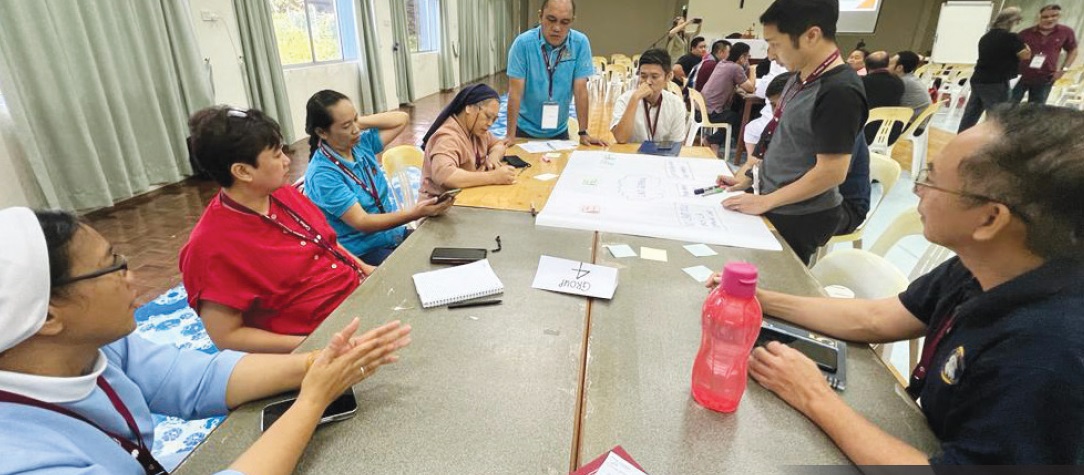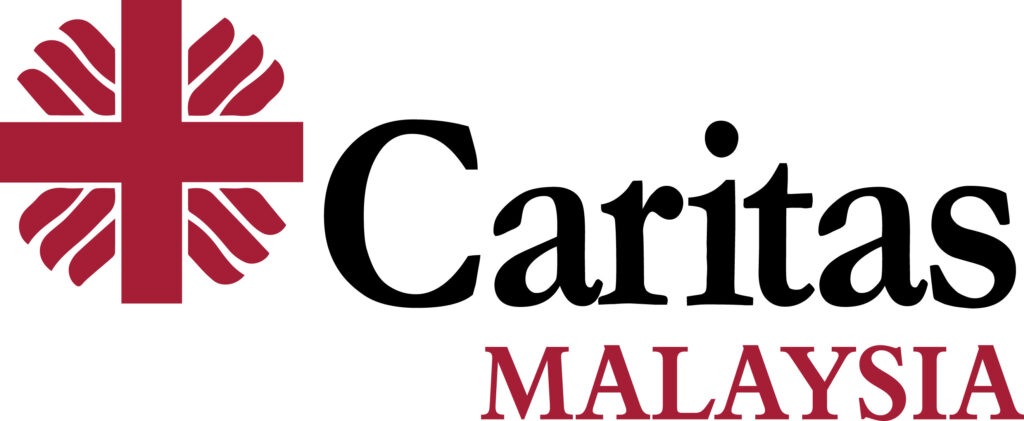Events & News

The 3rd Caritas Malaysia National Assembly
The third Caritas Malaysia National Assembly, themed Union of Minds and Hearts, brought together 49 members from the nine arch/dioceses across Malaysia. Led by Caritas national director, Fr Fabian Dicom, the assembly held from November 12 to 16, was a blend of spiritual reflection and operational discussions. It encompassed two days devoted to introspection and two days focused on operational aspects, fostering unity and a shared sense of purpose among Caritas Malaysia members.
Day 1-2: Reflection and Spiritual Growth The Assembly began with a two-day recollection led by Fr Alvin Ng, SJ. The aim of this recollection was for participants to spend time with the Lord and to internalise their reflections using the fruits of their prayers as matter for the spiritual conversations.
Spiritual Development and Identity within Caritas
The session highlighted sanctity as the pinnacle of human development, referencing key papal encyclicals and emphasising the intrinsic link between human well-being and social welfare. Participants explored charity as the core of Christian identity, following Pope Francis’ emphasis on ‘caritas.’ The discussion centred on practising charity in daily life across personal, familial, and ministerial roles, fostering a deeper awareness of others’ dignity, a spirit of poverty, a commitment to the common good, and a pursuit of peace.
Synodality and Centring on Christ
The session on Synodality highlighted fraternal collaboration and communal discernment, drawing parallels from the Exodus journey to emphasise unity in the Church’s path. It emphasised listening to grassroot members without judgment, focusing actions on Christ, and seeking inspiration from God’s love for charitable deeds in response to a changing world. Discussions stressed prayerful, truthful, and respectful conversations, valuing both listening and speaking courageously. Participants were urged to recognise God’s work through everyone, encouraging engagement in synodality, partnership, and networking with the universal Church for goodwill.
A cautionary note highlighted the consequences of losing sanctity, including the potential replacement of human discernment by artificial intelligence and the human desire for god-like powers. The importance of maintaining sanctity while fully engaged in the world was stressed.
Synodality and Solidarity were portrayed as collaborative pathways, emphasising the value of unity in diversity, pluralism, and diverse perspectives while striving for the common good. Solidarity was defined as a committed determination to pursue the common good, encompassing the responsibility for each individual because we are all interconnected.
Synthesis: Union of Minds and Hearts
Fr Alvin synthesised the theme, drawing parallels between the Holy Trinity and the essence of sanctity, synodality, and solidarity. Just as the components of a lit candle — flame, heat, and light — are inseparable, these attributes form a singular entity. Each attribute complements the others, mirroring the interdependency within the Holy Trinity.
The analogy emphasised the need to trust the Spirit to bind everyone together, even when physically apart. It was highlighted that challenges may arise, threatening to extinguish the light, symbolising the need to trust and see God’s hands during difficult times.
The reflection concluded with an encouragement to adopt a reflective mode of being, allowing intentional listening to the divine in daily life. The idea of continuing this contemplative mode, even amidst the fast-paced world of ministry work, was proposed, to draw strength from God’s peace.
The participants shared their initial insights, emphasising authenticity in sanctity, unity in diversity in synodality, and a steadfast commitment to the common good and Participants from the Archdiocese of Kota Kinabalu and Dioceses of Malacca Johore and Penang. the marginalised in solidarity.
Children and Vulnerable Adults Safeguarding Policy
Advocacy Guest speaker Josef Benedict, Asia-Pacific Civic Space Researcher at CIVICUS, conducted a comprehensive session on advocacy, focusing on addressing societal problems through planned, sustained efforts targeting discrimination, inequality, and exploitation. The session highlighted advocacy strategies and the multifaceted nature of effecting meaningful change within communities. The Problem Tree Analysis emerged as a valuable tool for dissecting issues and planning strategic advocacy approaches. Participants found this session highly relevant to their work within Caritas, benefiting from group exercises and practical applications of advocacy concepts.
The final day featured Domnic Selvam, a lawyer and former chairman of the Industrial Court of Malaysia, discussing the Safeguarding of Children and Vulnerable Adults. This session elaborated on legislative measures and guidelines aimed at protecting minors’ rights, safety, and welfare.
Fr Fabian highlighted that the Caritas Malaysia Children and Vulnerable Adults Safeguarding Policy delineates our purpose, scope, and the responsibilities we bear in safeguarding Children and Vulnerable Adults within Caritas. This policy is formulated in conformity with Canon Law and the statutory requirements of Malaysian state legislations, including the Child Act 2001, Child (Amendment) Act 2016, Sexual Offences Against Children Act 2017, Penal Code, and other pertinent laws. Caritas Malaysia has embraced the Safeguarding Policy of Caritas Internationalis, integrating specific elements from the Child Protection Manual of the Diocese of Malacca Johore.
Applicable to all Caritas Malaysia national, diocesan, parish staff, members and associates, this policy serves as a guiding framework for our collective actions.
Also implemented will be a readily accessible public reporting system, ensuring the appropriate management of received information and a swift response mechanism for any reported instances of child abuse or neglect. Additionally, a detailed flowchart outlining the steps and procedures for reporting and handling complaints will be provided to aid in comprehension.
All participants were allotted time to review and sign the acknowledgement form, signifying their commitment to adhere to the established safeguarding procedures and protocols. Representatives from eight arch/dioceses unanimously agreed to endorse this policy and consequently signed the acknowledgement form, with the exception of the Archdiocese of Kuala Lumpur.
Conclusion
The National Assembly focused on integrating sanctity, synodality, and solidarity into personal and ministerial aspects, highlighting unity, openness, and commitment to charity in Christian identity and service.
Participants were encouraged to embody the unity and empowerment experienced, engaging confidently with diverse perspectives and embracing truth. Acknowledging the transformative influence of the Holy Spirit, the participants found the assembly impactful, deepening their understanding of Caritas service’s spirituality and reinforcing their roles in ministries.
Several participants openly expressed gratitude for the assembly’s role in broadening their understanding of concepts such as sanctity, synodality, solidarity, and advocacy, which were previously unfamiliar to them.



